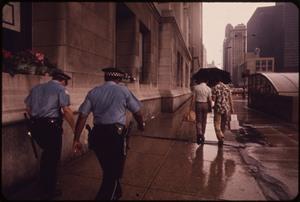A group of US senators is seeking some help for state-legal marijuana businesses, Chicago moves to expand a program that diverts drug arrestees into treatment citywide, and more.

Senators Ask That Marijuana Businesses Get Access to Federal SBA Loans. A group of 10 senators led by Sen. Jacky Rosen (D-NV) have sent a letter to Appropriations Committee leadership asking that language allowing marijuana businesses to access loans and other aid through the federal Small Business Administration (SBA) be included in an upcoming spending bill report. Allowing such loans to marijuana businesses "would fill gaps left by the private sector and help mitigate the effects of the COVID-19 pandemic." They are asking that Senate Appropriations Committee and the Appropriations Financial Services and General Government (FSGG) issue a report that specifically includes such language and stop the Small Business Administration (SBA) to stop "denying loan applications for the 7(a) Loan Guarantee Program, Disaster Assistance Program, Microloan Program, and 504/Certified Development Company Loan Program to legally operating cannabis small businesses in states that have legalized cannabis sale and use."
Law Enforcement
Chicago to Expand Drug Diversion Program. The Chicago Police Department and Public Health Department have announced they will expand the city's Narcotics Arrest Diversion Program to include the entire city by the end of the year. Under the program, people arrested on drug possession charges who meet certain qualifying criteria can be diverted from the criminal justice system toward rehabilitation programs instead. The program began in one district in 2018 and has expanded to 11 of the city's 22 districts already. More than 700 people have been diverted from the arrest track so far, and city officials say the move helps police focus on issues such as violent crime instead.
The program appears to be similar to Law Enforcement Diversion Programs (LEAD), which began in Seattle in 2014 and has now expanded to at least 42 cities nationwide. LEAD uses a harm reduction and community-based model; the Chicago program includes social service programs among its alternatives, not just drug treatment, according to reports. The Chicago program offers walk-in access to drug treatment; one doesn't have to face arrest or its prospect first. The LEAD Bureau web site says that they have added purely voluntary access to its programs as well, in response to recent movement in the issue.
While drug reformers generally see diverting drug users out of the criminal justice system as an important step, the devil is in the details -- not every program presented as diversion does a convincing job of it, and how for example treatment programs respond to relapses or continued drug use by some clients determines how many people ultimately will be helped.
Prosecution
ACLU Sues Arizona County over Threats of Harsher Sentences for Drug Defendants to Force Guilty Pleas. The American Civil Liberties Union filed a federal class-action lawsuit Wednesday charging that the Maricopa County (Phoenix) Attorney's Office routinely threatens people arrested for drug possession with "substantially harsher" punishments in order to coerce them into pleading guilty before prosecutors even have to turn over evidence. The threat is typically issued in writing, the lawsuit alleges, and explicitly warns that defendants who reject initial plea deals will face substantially worse plea offers in the future. The ACLU argues that the policy is unconstitutional because it punishes people for exercising their rights to a preliminary hearing and a jury trial and that it illustrates the '"vast racial and economic discrepancies in plea bargaining techniques used across the county."
Add new comment